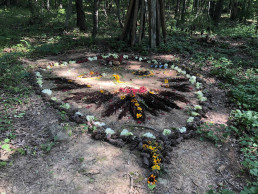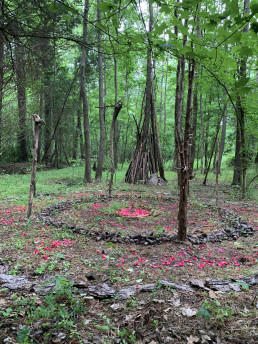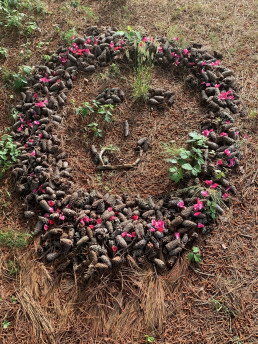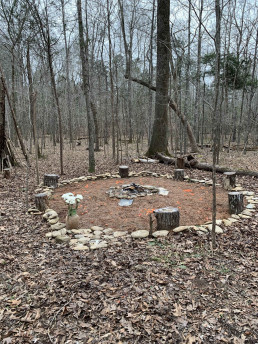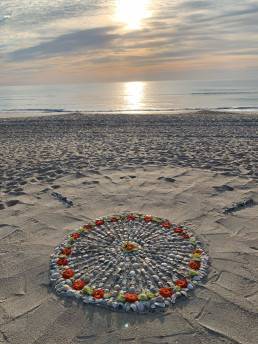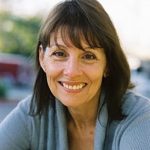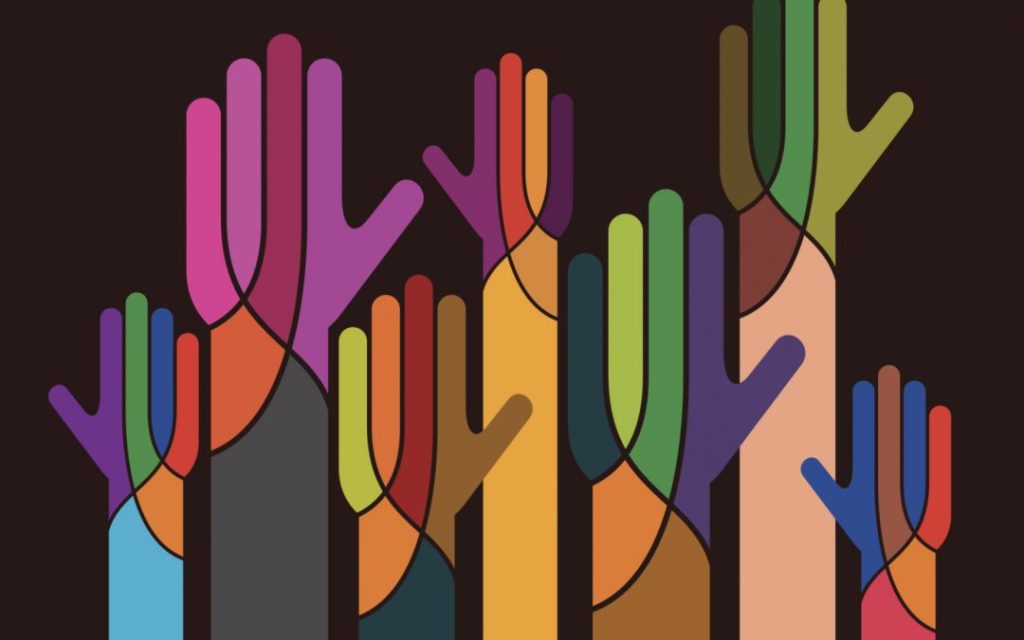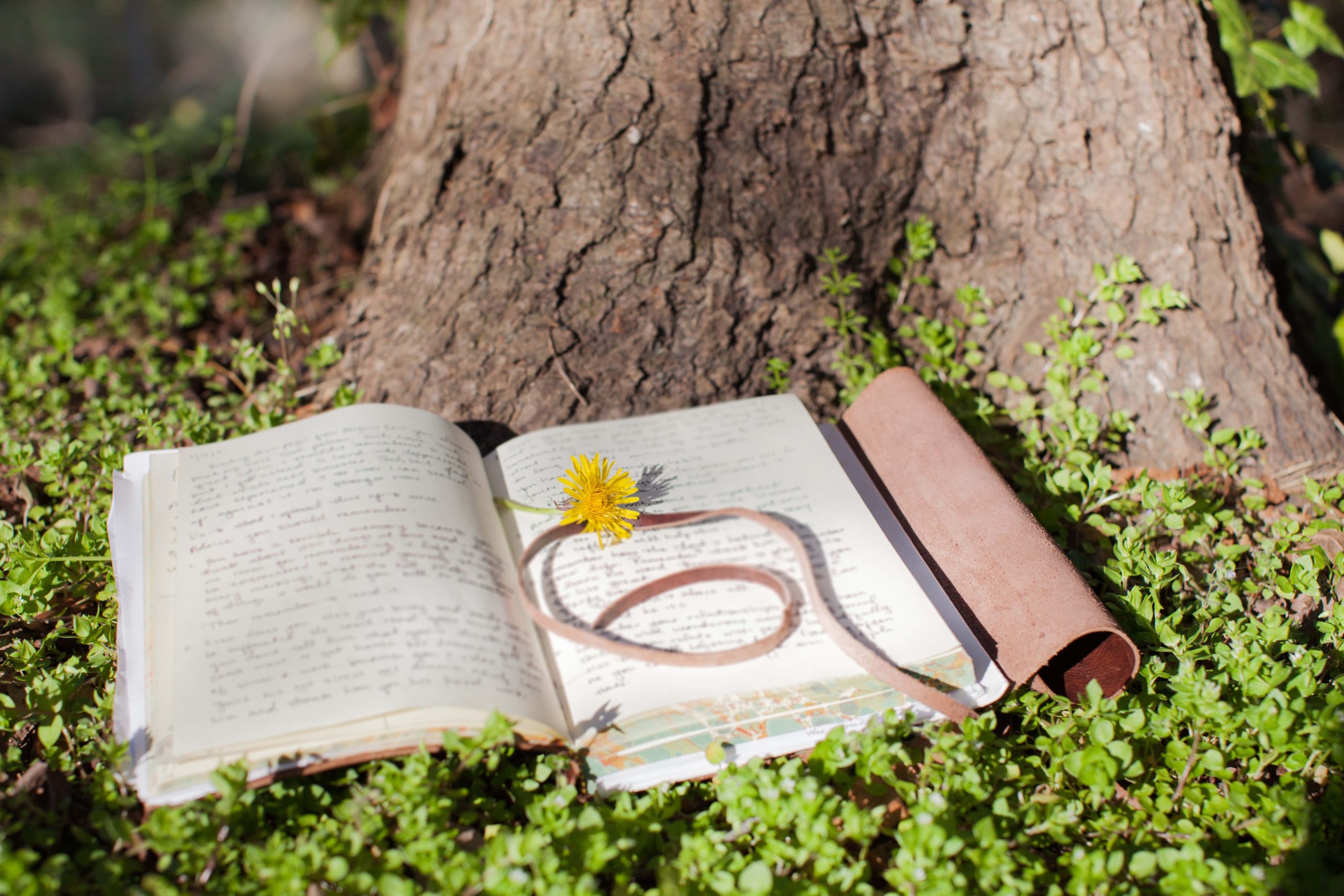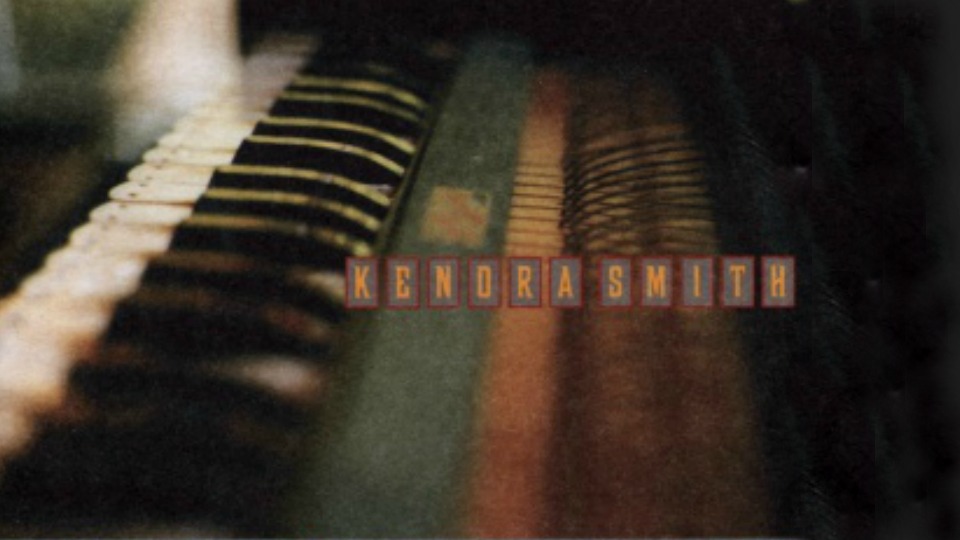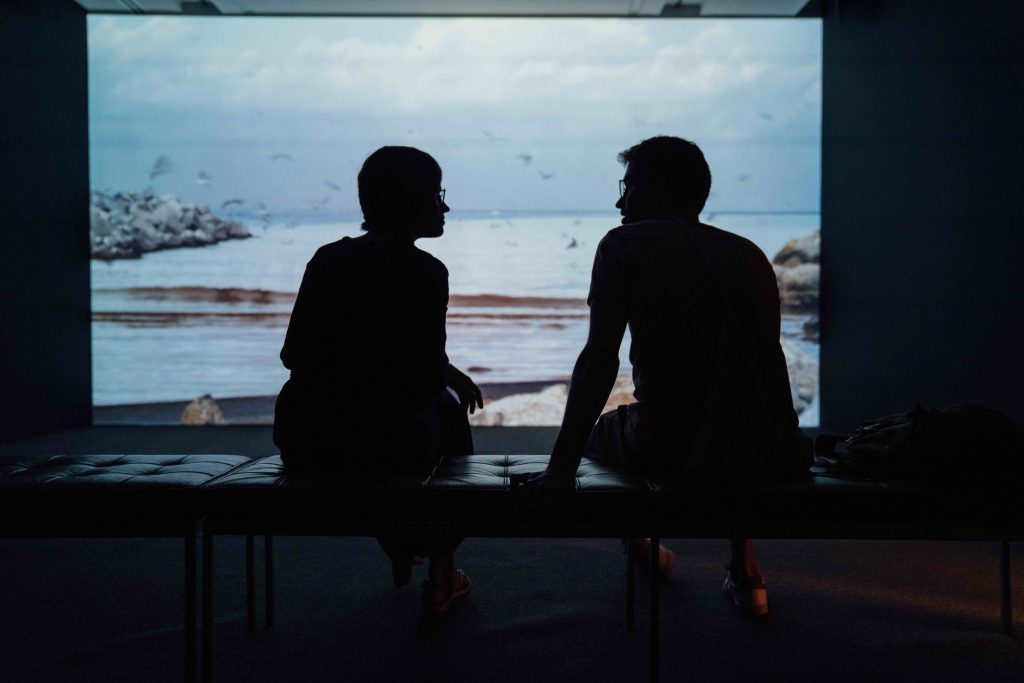What is Council Practice?
from Ways of Council
Council is an ancient way and modern practice whose roots are within the natural world, spanning diverse cultures and religions. This practice elicits an experience of true community, recognizing that each voice needs to be heard, that every person has a gift, a story to share, a piece of the whole. How do we remember all our relations, embrace differences, and find our own voices, while opening to others? It seems more than ever an essential time in our nation and around the world, to awaken this deep relational heart-mind.
Council offers a way of communicating that encourages attentive listening, as well as honest and compassionate expression. It makes room for new insights and understandings, wisdom in decision making, and healing. As a personal practice, a group process and a life-pathway, council is an intrinsic ingredient of our education at any age and especially important for families, guides, teachers, therapists, caregivers or any anyone whose work involves groups.
We have been drawn to the practice of council out of appreciation and respect for the wisdom tradition of First Nations and indigenous cultures that invariably included strong circle practices that were a seamless part of their life and relationship to the earth functionally, culturally and spiritually. We have been drawn to council because of its roots in these cultures, and the magic and healing that non-hierarchical circle communication can bring when practiced devoutly. In addition to appreciation for council’s timeless roots, we are drawn to council because it works. Speaking and listening from the heart can connect people authentically in a way that strengthens relationships, actually deepens relational consciousness and builds stronger communities. We have found that conflict exploration, co-visioning and decision making flow more productively in the council environment. Communication between intimate partners and in families flourishes more readily when council practice is embraced.
…excerpts from a session
Introduction by Jackie Parker
Twenty-five years ago, I created the Power of Our Stories workshops to help people of varying ages, backgrounds and experience share their stories deeply and freely, especially through writing. I had no idea that this process would become a way to bring people together in sacred community.
It was as if these stories were just waiting for the signal to spring forth into the world. For 25 years this has happened in every first gathering or workshop or class. I am still astounded.
It can feel natural and real or terrifying! With each meeting the masks drop off, the untold stories arrive: Moments of spiritual hunger and childhood shame. Moments of connecting to the Earth, of discovering their strength, often in early childhood. Difficult choices, tragedies met. Secret heroic acts. Beautiful, moving, courageous, and inspiring words are written and received in the workshops, creating families where we can be seen and blessed for who we truly are.
This is what you will see with the beautiful young men whose stories you are about to read. When the Circle was over, my co-leader Frank Phoenix and I were close to tears. “They really heard each other. They really want to hear each other. It’s a deep, deep longing, a deep, deep need. It takes us back to who we are,” Frank said.
I am humbled by the power our stories have to give voice to our hearts deepest truths. Even more by the ways they inspire and strengthen us to bring our powerful authentic selves to each other and into these times.
Editor’s Note: Circle Facilitators, Jackie Parker and Frank Phoenix have been hosting a group of young men, in collaboration with Kosmos, for an ongoing dialogue on the theme, Sacred Masculinity.
FRANK | Welcome. I became familiar with Way of Council about ten years ago. Andrew Cohen was a spiritual teacher, and he set up a structure for us to use as we were speaking: to set an intention for the sake of the whole, to follow the thread of the conversation and allow what was said to spark something in me, and speak spontaneously. And it was the first time I experienced how the collective became its own entity, or it really became the space for the Divine to show up. It became what I imagined Jesus meant when he said, “when two or more come together in my name, I am there.”
Prayer Circles
Frank Phoenix, called Byrd by his friends, has experienced countless circles. He currently hosts circles following Way of Council for Abundance NC called Stories of Grief and Healing. Another favorite practice of Byrd’s is making Prayer Circles, a form of meditation for Byrd and a way of honoring and connecting with Mother Earth and the Ancestors. Here are a few of Byrd’s circles.
JACKIE | There is no way to do this wrong. You may think, ‘oh, no, I shouldn’t say that’. Yes, you should say that. Just let it go. You be the instrument for your words. Okay. So here’s the prompt: Tell the story of a moment in your life when you discovered either your courage, your confidence, reverence for Life, or your thirst for union with the Divine.
(passage of time to gather thoughts and make notes)
DERRICK | Thank you for the prompt. The moment I wanted to speak about is the moment I decided to become sober off of alcohoI. Nobody else could make this decision for me. I had to make it for myself. I was living in a room, just by myself, kind of in a meditative state and it was almost like hearing a voice, a person’s voice. I was hearing my own voice, you know, like another side of me speaking that I could do this, it was in my own power. Those first few days, I felt extremely anxious, depressed, like the world was crumbling around me.
But I really found some strength in that. Three and a half years later, when I think about where I’ve come since then, it’s pretty amazing the decision that I made, how it affected the rest of my life. I was farming for a while and now I actually got into banking and I’m a retail banker.
STEVEN | Hard not to feel proud of you man and impressed. The courage and the discipline are so clear there – a clarity and a commitment that are really inspiring.
DERRICK | Thank you.
STEVEN | My first experience of reverence for Life was my first real encounter with death. A month before my 19th birthday my mother passed away after a three year struggle with ovarian cancer. Love had always been largely transparent to me and only vaguely gestured at by saying and hearing the phrase “I love you.” It became real witnessing myself caring for, and loving my mother at the end of her life.
My reverence for life was born in the many hours spent alone in the forest while I was beginning to process my grief. I didn’t know how to talk about my grief with others – I still don’t seem great at communicating about the parts I haven’t really integrated – but I didn’t need to explain my grief to the trees or the creek. I could feel the rough ripples and divots of tree bark and sense that I was accepted with all of my pain and joy. The more I retreated into the forest, the more my sense of self, with all of its stories, anxieties and pursuits gave way to an appreciation for, or perhaps an attachment to the timeless existence of life.
Currently, my attention is engaged much more with human affairs – the ups and downs of my marriage, my goals for my business or my family’s financial future, the news and politics. My engagement with nature is also dominated in this way, whether it’s an evening walk with my wife and dog or chopping wood so we’ll be comfortable next winter. I am accepting of these changes, sometimes even proud, but I can also feel how this way of being can pull me out of a deep core of reverence for life.
GENE | I’m also a Dad – I have a six year old. Since I met Jackie and we did the workshops, I’m writing a lot more. It’s helped a lot to bring some clarity into my life and some peace for sure. I’m very happy to be here despite finding it difficult to identify with courage or confidence. And I must say that very much fills me with sorrow and regret that I just can’t seem to find any of these in myself. I’m so scared that everything I’m doing will fail and everyone will be disappointed and I’ll be truly alone. I find myself looking up at the sky for answers to things I can’t find through hard work.
I think back to the time as a six year old boy, I realized how little I thought of myself as a person, that I was not someone who deserved to be hugged or acknowledged. I liked hearing people talk about how well I behaved despite not having a paternal figure. They praised me for sitting still and not expressing my desires. That boy wanted to be happy. And I think he’d be proud that I’m finally learning how to be, little-by-little, day-by-day. I hope he’d like to visit me and we could talk about all the things that he wants to say. And I can tell him how proud I am for having all that courage – to keep smiling.
STEVEN | That’s powerful. I see a few things in there that strike me – the vulnerability, which is courage. The humility, frankly, which is a hard thing to talk about. I think masculinity without humility is where we go wrong. I hear you parenting your younger self, right? There’s a way that you’re stepping into that fatherly role for a younger version of yourself. And for your own child. And that’s just really powerful, man. I’m really grateful that you shared.
BRANDON | Yeah, Gene, I felt while I was listening to you that we have this kind of vision of what sacred masculinity is and through hearing you talk, I realized how far away from that ideal I am myself as well. It’s like you said, a day-by-day, gradual process and humbling ourselves to realize where we’re at in this moment, but having that vision of who we want to be and to come together with other men to encourage each other. So thanks.
When I was 23 years old in the fall of 2015, I sat my first meditation course in a small town in Wisconsin. It was waking up at four-thirty in the morning and a pretty full schedule of meditation until the evening. There was a moment on the sixth or seventh day that would really change the course of my life forever. It was a really unshakable sense of peace and contentment that was as unconditional as any I had experienced.
This moment came and went, but others, similar moments like that were to come during this retreat and others that followed. And sometimes just in the midst of living, I found this place to be a deep well of creativity and insight into various aspects of my life and the world around me. I was starting to understand things in a deeper way, through this meditative state, and this moment was so powerful because it colored many aspects of what we are considering to be sacred masculinity, a reverence and a love for the beauty of the world around me.
DAVE | I met a man who became the most influential person in my life, this teacher, this author named Michael Singer. I felt inspired to start one of his courses. I would listen to one recording every night while I was laying in bed. At this time, I was completely obsessed with financial freedom and business and making money.
He showed me more clearly than anyone else had that the ‘dream life’ is like not actually what I wanted at all. I wanted money because I thought it would give me fulfillment a constant state of happiness and joy. But he taught me that I’m the cause of all my own suffering and problems and I’m not my thoughts or my emotions. I’m actually just the one experiencing them. It’s been a profound practice for me to objectify my thoughts. I was completely identifying with every single thought that would come up in my mind.
ARLO | I think that was spot on. I have experienced a lot of those emotions too.
I was working on this farm when I met this really cool dude named Robert. He played guitar and piano and he actually had a degree in opera, which I thought was badass. He really inspired me. There was another experience where I got to work up in Canada and I got to do this leader-in-training program. And there were these really cool, older counselors. And they were athletic and played music and were super playful. Another one was my boss. I feel like I take the traits that I admire in others and try to embody them and practice kindness. I’m a student of abundance and my skills and mindset have grown from that, I believe. And I understand now that young men have a need for role models and to learn from them.
So, these days I have younger men on my projects. And I almost feel like I’m in that new role of like being the role model. And that’s an honor. I’ve tried to learn from other men that model sacred masculinity and how to model that to others – just being a strong man, as well as an artist and a lover and a brother. That’s what the prompt brought to me.
JACKIE | I’ll let you in on something. These questions are designed to crack things open and you just did beautifully with them. Really, you are wonderful human beings. I’ve learned so much.
Special Thanks
Steven Lambeth, Founder, Family and Future – gourmet chocolate and nut butters.
Dave Pollmiller, Founder, Harvest Garden in Hawaii
Derrick Pickerill, Retail banker in Carrboro, North Carolina
Arlo Estill, Founder, Hempsmith Clothing Co
Brandon Schell, Homesteader and tiny house builder
Gene Arzube, Writer, student and dad


